Mini grid resilience through integration of e-cooking loads
Olioka, Kenya
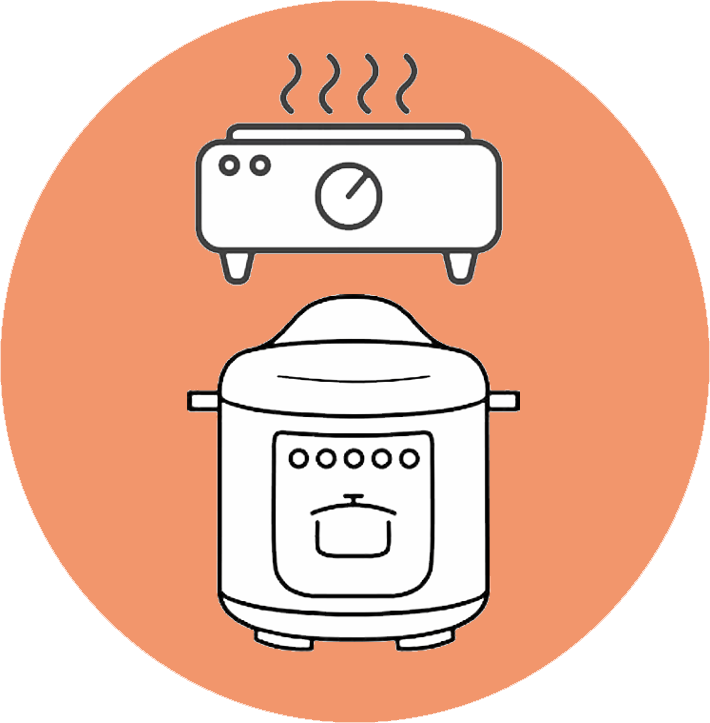
Off-grid solar (PV) mini grids are considered as cost effective alternative to centralised grid extension in remote rural areas across many electricity access deficit countries. However, poor per capita electrical demand remains the main challenge for long-term financial sustainability of such mini grids. E-cooking has the potential to enhance the financial viability and sustainability of mini grids by increasing electrical demand. Although, ‘Clean cooking’ has been a topic of research for many years, interest in e-cooking per se is relatively new, motivated by affordable and efficient (=low power) devices on the market. On the other hand, mini-grids have very constrained power capacity and there is a delicate balance between increasing demand and overloading the system. Therefore, the flexibility and adaptability of energy customers will be key in the success (or otherwise) of e-cooking in a mini-grid context.
E-cooking potential
Integration of e-cooking through an appropriate approach, will open up the opportunity for replacing expensive LPG and environmentally damaging firewood collection in the community while increasing income of the mini-grid through utilizing the excess power generated by the PV system in the daytime.
Project aims & objectives
For this study, to explore the potential of integrating electric cooking in mini grids, the Oloika Solar mini grid project will be used as the case study site. At present the mini-grid has 75 customers, who are currently using electricity only for lighting and other basic appliances. For cooking, the community uses firewood, charcoal and LPG. Switching customers from biomass based cooking to electric cooking requires both quantitative and qualitative data related to current cooking fuel uses, customers’ willingness to adapt electric cooking and related challenges. Therefore, this project will investigate various techno-economic approaches to identify the most suitable model that can be adapted by the planned deployment of around 100 mini grids by the Kenyan Government, as well as others in the region. This work aims to address the lack of data in this regard in a real working mini-grid in Kenya, originally developed by the Energy for Development Programme at the University of Southampton.
Phase 1: e-Cooking in Oloika Mini Grid
During the first phase of the project, our team explored potential opportunities and challenges of integrating e-Cooking related to local cultural, socio-economic and technical aspects through surveys, modelling, awareness campaign and engagements.
Phase 2: e-Cooking in Oloika Mini Grid
After the success of Phase 1, we moved to Phase 2 of the project in collaboration with our partner ‘Kenya Power and Lighting Company (KPLC)’, to deep-dive into innovative solutions for issues identified. Our ongoing initiatives include:
- Developing a gender responsive and sustainable business model that brings together efficient e-cooking appliance (EPC, induction cooker) supply chain with flexible and affordable credit options, and the mini grid operator (/utility) offering a flexible tariff scheme that encourages users to cook in the daytime when enough/surplus electricity is available without using expensive battery storage in the evening
- Piloting of an innovative e-cooking load control framework/model supported by smart technological intervention focusing on capacity of the mini grid and its financial viability, while delivering benefits of flexible-tariff to customers, and providing enough reward for the appliance/finance supply chain operator.
Above initiatives are ongoing with the support from a local micro-credit provider, ‘Magadi Sacco’, Oloika Solar Cooperative and our partner KPLC. Several events covering e-Cooking training & demonstration, e-Cooking appliance financing, awareness on health benefits for women & children, and local capacity building support have been held in the village. Furthermore, to accommodate more e-cookers for acquiring robust findings backed by large operational data sets, our research team has modelled the system upgrade requirements including generation, storage and distribution capacities. Learning from this project will create invaluable, yet unique knowledge base for the Ministry of Energy and Petroleum, Kenya, mini grid developers and other key stakeholders including the policy makers.
Funders
This study, under the Cooking Support on Mini-Grids’ (COSMO) programme is a part of the Modern Energy Cooking Services (MECS) funded by the Foreign and Commonwealth Development Office (FCDO) and delivered by Loughborough University, to address key barriers to using electric cooking on mini-grids.
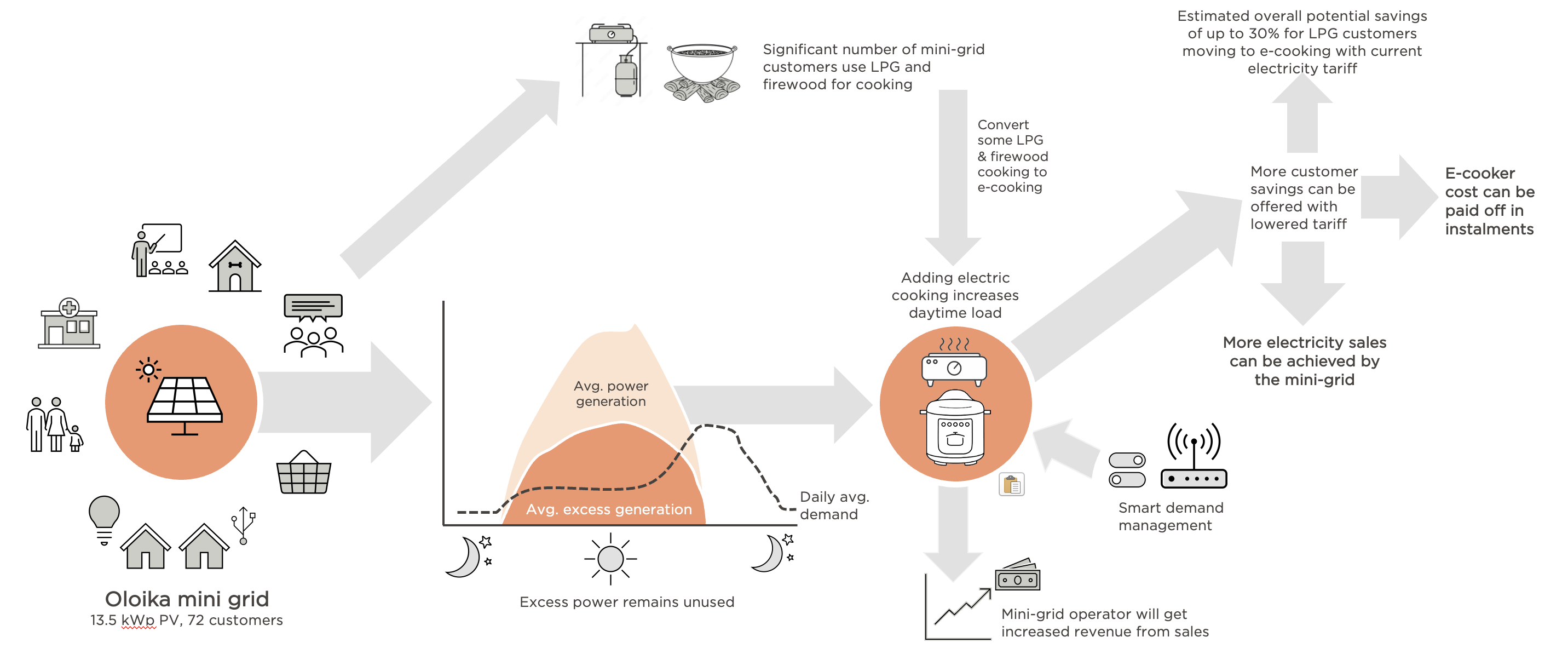
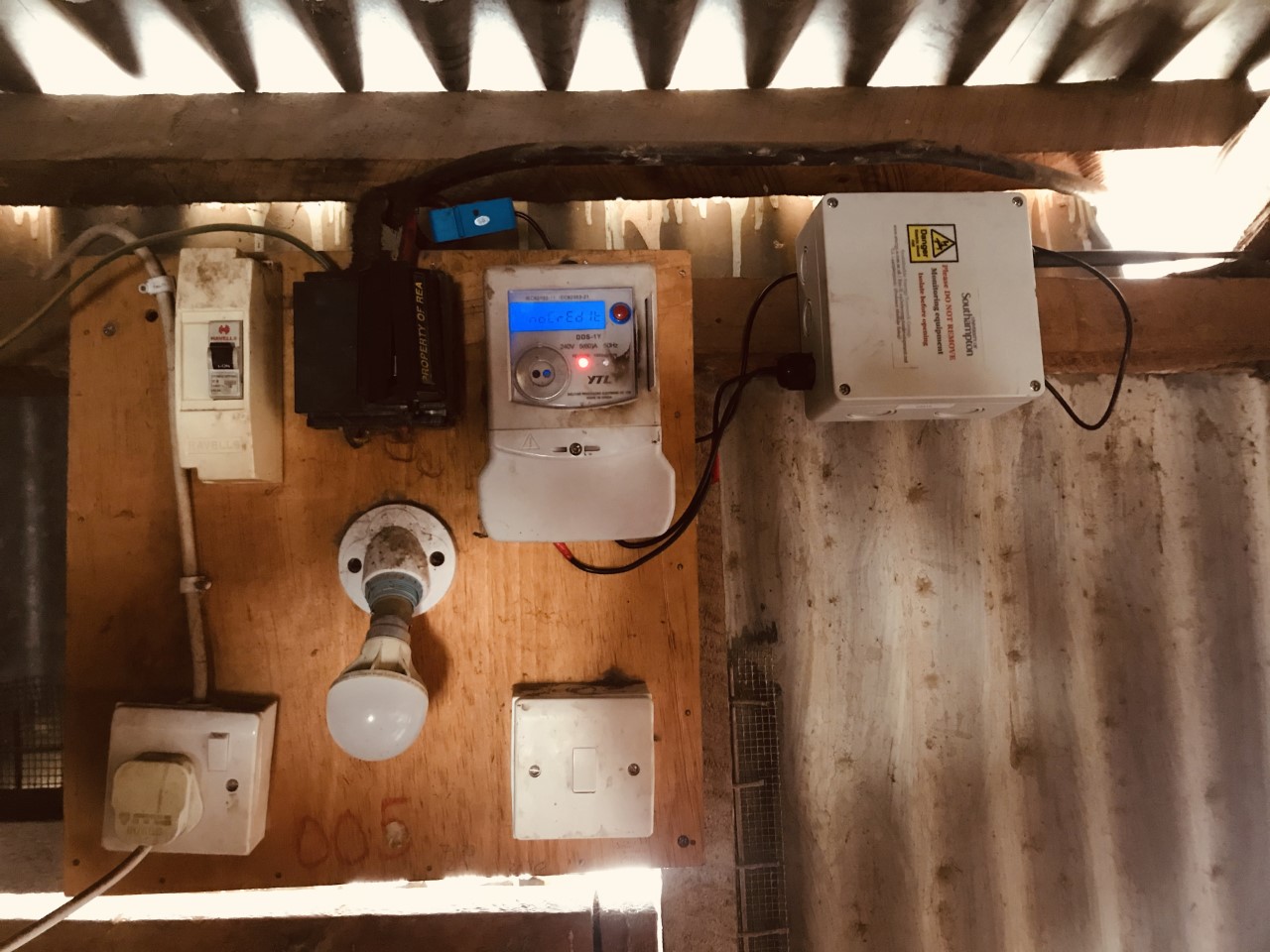
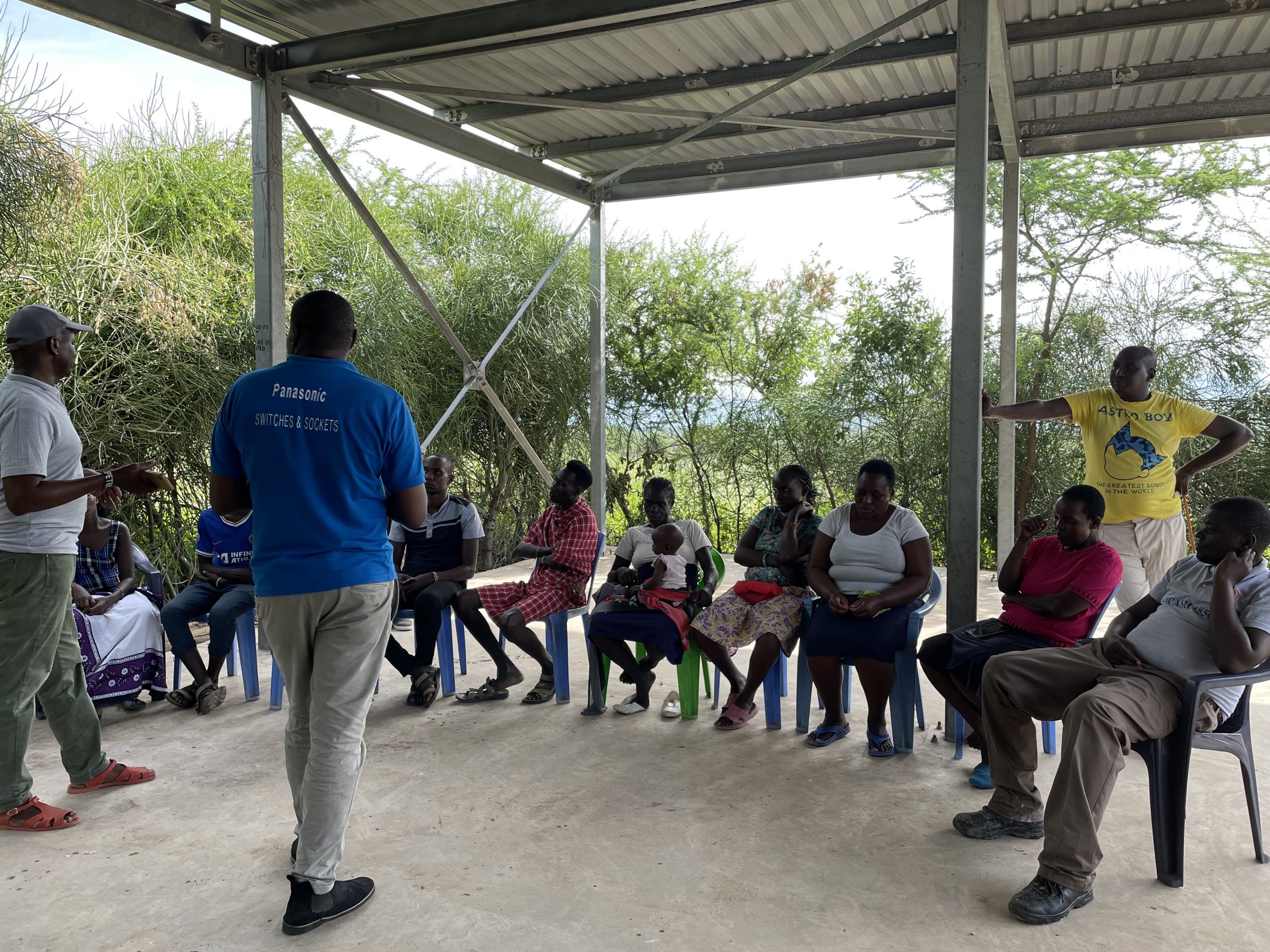
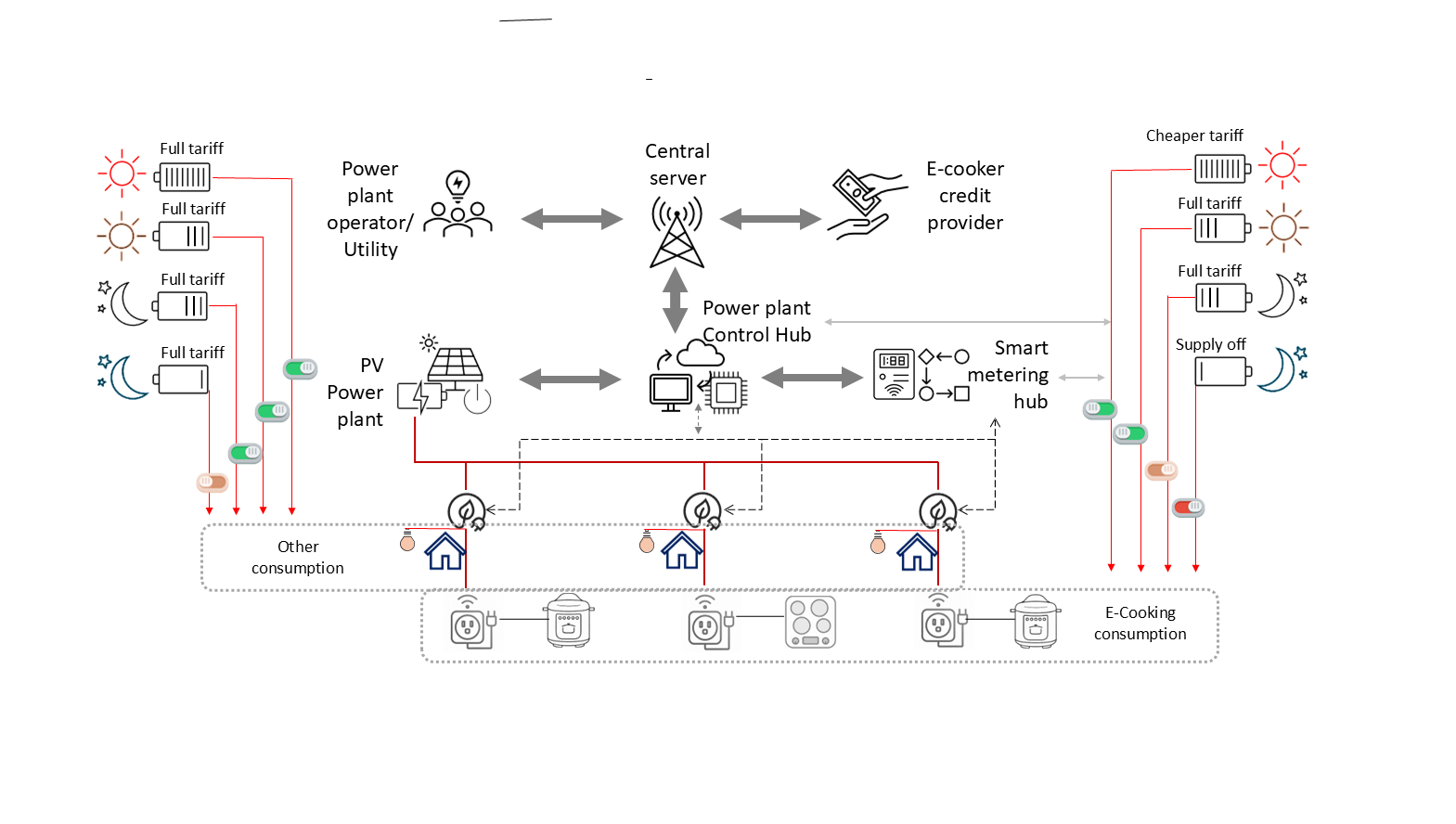
Our ongoing innovative e-cooking load control model, which includes reward for customers taking advantage of flexible tariff
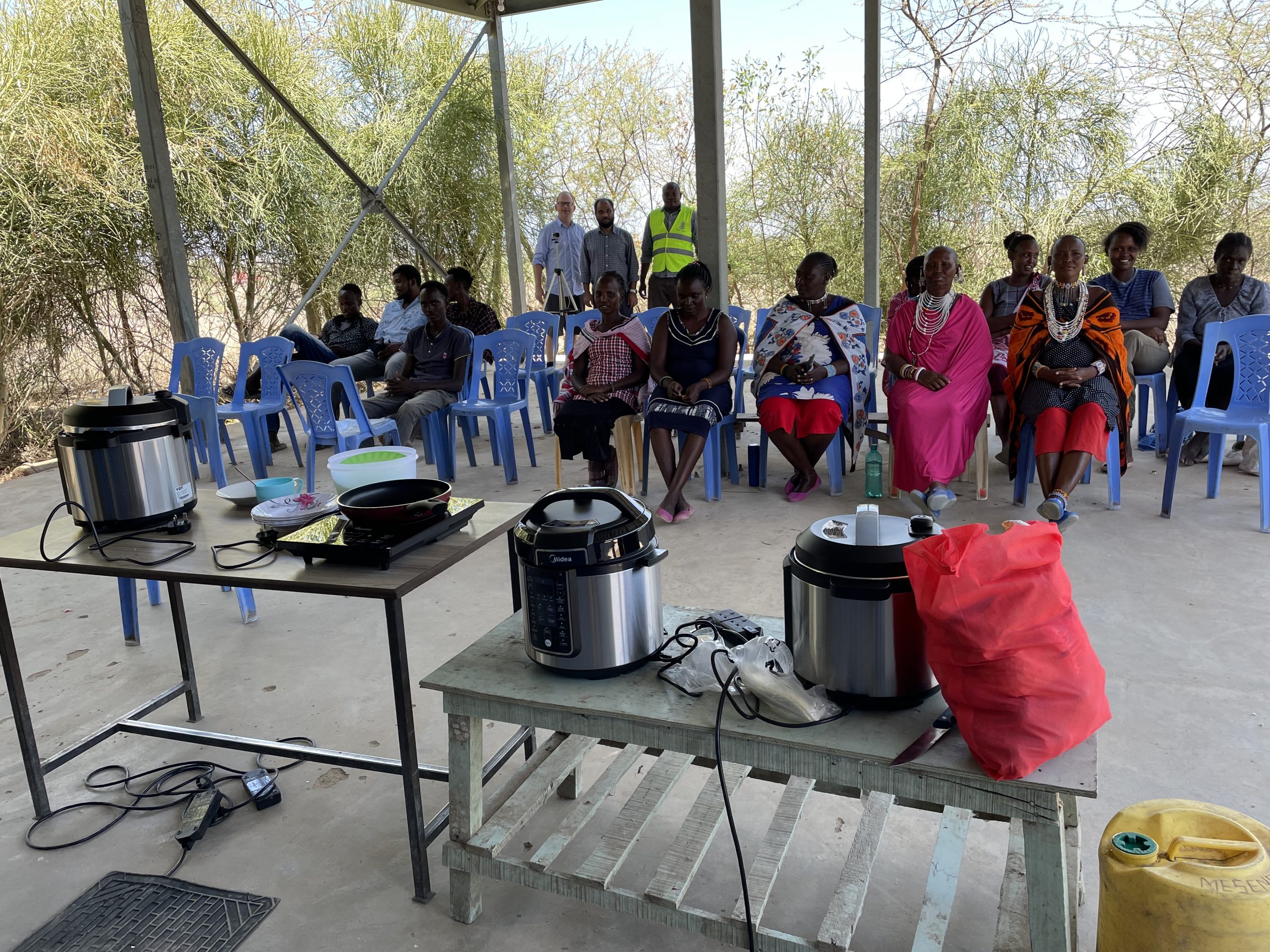
e-Cooking demonstration, e-Cooking demonstration for the women and community members, Using a locally available metal cooking pot with induction hob
